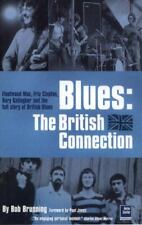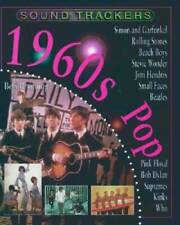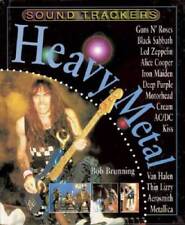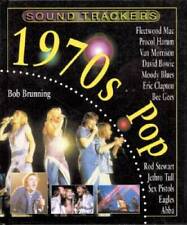|
Orange County Weekly, Madman Across the Water Orange County Weekly, September 4-10, 1998 Madman Across the Water Peter Green's Blues By Buddy Seigal Peter Green hasn't played in the U.S. in 28 years, ever since he left Fleetwood Mac- the band he founded and which was originally called Peter Green's Fleetwood Mac- following an LSD-fueled emotional breakdown in 1970. But Green left a legacy of excellence with his four Mac albums, which included songs such as the eerie "Black Magic Woman" (which Santana covered and turned into a huge hit); the bemused, hard-rocking "Oh Well"; and the gorgeous "Albatross." Like Pink Floyd's Syd Barrett, Green has been the subject of much twisted legend based upon his subsequent descent into madness. There were reports he had been committed to mental hospitals, been sent to jail, given away all his guitars, refused to accept huge royalty checks, worked as a gravedigger, labored on a kibbutz in Israel, undergone shock treatment, and joined any number of religious cults and communes, all while under the influence of copious amounts of LSD. It was a rarely matched fall from grace. But it may have been a blessing in disguise in at least one way: he didn't notice when the Stevie Nicks-fronted lineup of the group he founded earned untold millions playing cloying '70s soft rock. Green briefly resurfaced - from time to time following his split from the Mac to record the odd solo album or tour with such bands as Kolors that showed none of the fiery blues ardor that originally stoked his creative furnace. Now Green is staging a comeback with the release of The Robert Johnson Songbook, his first new studio album in 20 years, and a U.S. tour. While Green remains a guitarist great skill and taste, Songbook not a showcase for the eye popping solos one might expect; rather, it is a personal and meditative collection of interpretations of blues god Robert Johnson's compositions. Recorded with guitarist Nigel Watson and Green's backup band, Splinter Group, the album is down-home and folksy, like front-porch music of friends on a summer day. It is appropriate Green should tackle Johnson's music, as the two have much in common: deeply tortured souls and a keen instinct for the cathartic nature of the blues. Green suffers from schizophrenia, but he said he's currently off medication- by all accounts, he's doing relatively well these days. During a recent phone interview from his home in England, Green seemed quite the happy chap. However, not all was right, as he rambled off into places blessedly foreign to most healthy minds. Still, you cannot help but cheer his courage for coming back in the face of such daunting obstacles, or cheer him onto good health and great music. OC Weekly: It seems like you approached Robert Johnson's music with a great deal of respect for the meaning of his songs. Peter Green: Ultimate respect, yeah. Nothing but. A lot of guys might have just said, 'Well, here's a great chance to show off all my blues-guitar licks.' [Laughs] I had my time with that. I'm hoping I surpassed that. That's just a phase in your development, you know? It's kind of sweet. Now I'm old, and it's sweet. Sweet times. Tell me what Robert Johnson's music has meant to you. He's kind of like the start, isn't he? The phonograph. That's when the phonograph was first invented, wasn't it? It sounds like it. He's one of the pioneers of music. Not that I'm a purist. But you do know when you hear him that you're hearing the beginnings of Bessie Smith, that kind of blues and jazz. I could be completely wrong. There might be millions of clarinet players and trombonists. [quoting a Johnson song] "Hot tamales, and they're red-hot/Yeah, we got 'em on sale." He's the beginning of music. I understand it has been 28 years since you've played in the States. It's been less than that. It might be 20. Maybe half, maybe 10. How does it feel to be coming back after all those years? It feels chilly, a bit empty. It looks kind of packed, doesn't it? It's moving about. The sports world. Big guys. When you think of the U.S., do you think of the sports world and big guys? Yeah. I'm not really too sporting. I could get into a little bit of athletics, but I can't get into football and things like that. Do you feel any kind of pressure returning here? In America, you're perceived as this heroic guitarist who just kind of disappeared one day. People will he expecting great things from you. A slight pressure, yeah. They call that a request, not a demand. I don't expect people to understand the songs that you do. It's a new group, and it's very lucrative- young American people. Do you expect after all this time that the blues audience in the U.S. will have changed a lot? There's no such thing as a blues audience in the States. I don't know if there are audiences familiar with the blues idiom. How are you feeling these days? I understand you've been off medication for a while, and you've been feeling a lot better? Yeah, I'm feeling a lot better. I couldn't stay awake on medication. I was sleeping all the time. You don't have a chance if you're sleeping your life away. 1 look kind of tranquilized. I look a bit pasty, I'm afraid. Leek-and-potato soup. Leek-and-potato soup. You went through many years when you didn't play guitar at all, right? I made some albums. I played with a group called Kolors. We did a bit of work. We went to Spain a few times-- and Rome. We got about a bit. And I just got all my money stolen. What was the question? You went many years without playing guitar? Not too many. It might have been; I don't remember. I slowed everything down, and I'm still sort of doing that. I'm not trying to worry about whipping the neck off the thing. I'm not trying to be Mr. Whip-it [laughs]. Those early days, when you're too young to know- I was just waiting for my money to run out. My wife wanted all her alimony. She has them on tablets, you know? At one time, you were refusing to accept your royalty checks from the Fleetwood Mac albums, weren't you? I need to keep a check on management, that's all. I have all this money due to me, but they got caught up in all this stuff. It's all extreme rumor. They were inaccurate. Since the rumors were inaccurate, can you tell me why you never came back to Fleetwood Mac? I don't remember now. I just wanted to see what else came my way. I didn't feel bound to them in any way. I don't know what it was. It was all me. You never know, do you? Someone gets inside your head and says: "Why don't you leave? You've had your success. You might as well leave." It's like walking in sunshine, getting out. With all the changes in band members and music style that Fleetwood Mac went through all the years, did you follow the band's evolution? If so, what did you think? I lost track for a while. When it was Bob Welch's band, I didn't really keep track of the music. When they added the girl to the band I envied Lindsey Buckingham. It was American players, country-and-western players. Stevie [Nicks] is still with them. Nowadays. if they play, she'll be there with them. She's still there. Did you like the bit records the group made with Stevie? It wasn't blues. They requested me, but I wasn't overly keen on playing with them. I'm not one of those people who has to prove anything; I just hope I don't get booed off the stage. Religion was a source of comfort to you for some time, right? I sorted out my religion. I took the LSD with religion. We understood our religion in the same way. I kind of accepted that, but I shouldn't have because it's an induced thing, isn't it? So you are no longer a religious guy? No, no, no. Not at all. I expect the worst to happen, strange things to happen to the Earth. I don't need religion When you play now, do people still yell requests for old songs like "Oh Well" and "Black Magic Woman"? Do you still play them? We have ones we play. We don't play "Oh Well," I'm afraid. We play "Black Magic Woman." That's how I got back on the road, actually. I won an award for 2 million plays all over the States. The Santana version, of course. You must be proud to have written that song. Well, there are a lot of people who haven't heard it, the influences where. I got it from. I don't think too many people have heard Otis Rush. I might be wrong. That nasty, minor-key blues thing ... Well, it's not nasty to me because I'm a musician. I was actually quite nourished by it. Swimming in his waters-- they're meaningful. You just named Otis Rush. Who are some of your other favorite guitarists? Buddy Guy, B.B. King, Freddie King, Albert King, Elmore James on slide guitar occasionally. The old guys. Lonnie Johnson is one of my favorites-an expansion of the walls of the world before you. Honest difference throughout his career. He's sane, you know. Have you been writing any new songs? No. But if I'm encouraged, it's like... like if you were Russian or Polish, for example. No American stuff. I don't know. Do you feel any sense of personal triumph after all the years of hell you went through? No. I need help. I need practice. I need advice in general. And I'm excited to come through. Now that you're back, will you be staying a while longer this time? People like our group. We need some brushing up, I suppose. But it's a lot of fun. People like it. Is it good for soul to be playing again? It's good for something. I don't know about soul [laughs]. That word; I try to... I wonder about that stuff [sighs]. Thanks to David O. and Phil for posting this to the Ledge and to Anusha for formatting and sending it to us.
|








